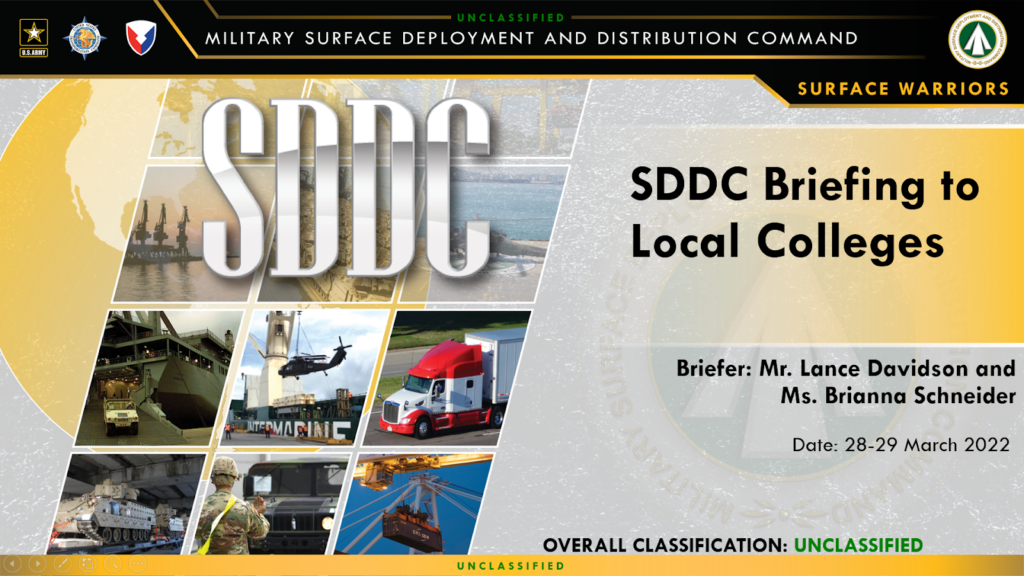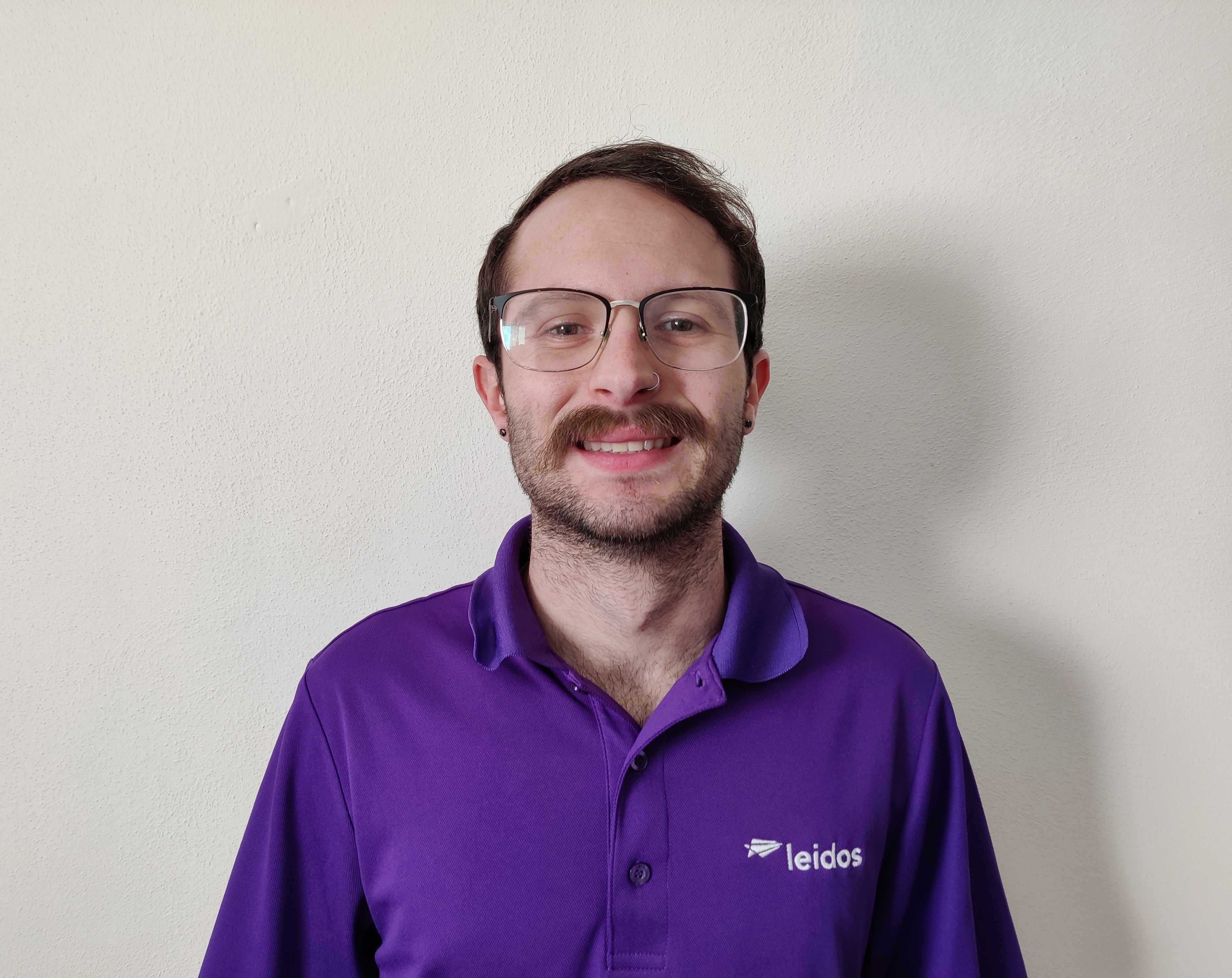
By: Chloe Gamber, Head Academics Writer
Pictures taken/collected by Chloe Gamber and Nat Wilk, presentation screenshots by Mr. Lance Davidson and Ms. Brianna Schneider
Ms. Brianna Schneider and Mr. Lance Davidson, taken by Chloe Gamber
Have you considered looking into the military as a civilian? If not, here is some easily accessible information to get a brief understanding of what these jobs consist of. Not only did the speakers provide information about the Surface Deployment and Distribution Command (SDDC), but there were also some tips about constructing a resume that anyone could benefit from. Ms. Brianna Schneider briefly explains, “They are in charge of transporting those in the military to the right place at the right time”.
Ms. Schneider resides at the headquarters for Human Resources for Scott Airforce base – she attended Southern Illinois University – Edwardsville (SIUE) for two years with a bachelor’s degree in Business Administration. During this time, she had been a part of the Pathways Internship. The following slide shows the eligibility for this program along with how the completion process occurs. Here is the link that is provided for applying for these positions: Valid Leaving URLs (opm.gov)
When it comes to looking for your career you can never gain too much information. McKendree graduate (class of 2019) Ryan Krause majored in Information Technology and currently works as a government contractor; his position is Configuration Management Analyst for the Department of Defense. Ryan started his journey through a degree that would give him insight into technology and had a Software/Network Engineering internship in 2018.
Here are a few words of advice from Ryan that can help guide students with similar interests:
“My advice for someone wanting to work for the government, or as a government contractor, is to try to find an internship at least a year or two before graduation (the earlier, the better). If you perform well during an internship, there is a very good chance that you will get offered a position, provided they have a spot open. At the very least it’s great to have on a resume.”
“Additionally, I think the best way to know which role is right for you is to just try everything you can and see what you like. There are a ton of different teams that work together, and there is decent flexibility to move around and try new roles, especially during an internship opportunity. If you can’t manage to get an internship, there are a ton of resources on YouTube and throughout the internet that you can use to learn and hopefully help figure out what interests you. I’ve personally learned a lot about which tasks I like and which ones I despise, but I still have yet to find my ideal position.”
Our second presenter, Mr. Lance Davidson was a Navy civilian worker and transitioned to an Air Force civilian worker in 2010, but is currently retired. Mr. Davidson emphasizes on the growth of graduates joining the SDDC: “17 percent of grads in the last five years and an overall 46 percent of graduates have joined in the last five years.” If you choose to go the Pathway Internship route, you will have multiple options for employment.
Going back to Ms. Schneider, she had started the internship part time and worked full time in the summer. Keep in mind that the hours worked must be 640 before graduation as emphasized in the previous slide.
“Your resume is your federal application, [the] best way to market yourself to employers, [it] conveys your qualifications for the job, shows you can provide immediate results, [it’s] your first and possibly only impression and it is also used to determine minimum qualification.” With so much weight on your resume, you should follow the guidelines for the USA JOBS Resume builder to learn more information that is essential for your resume.
Some additional resume tips provided from the presentation include: “Use plain language, explain acronyms and use them sparingly, highlight relevant experience and education, [and] state the facts.” You also need to explain what you did and how it made a difference and state your skills that show you have the necessary needs required for the job.
There are some format tips to also keep in mind. Your resume should use reverse chronological order for all experience. For government jobs specifically, lengthy resumes are what they want! A paragraph formatted accordingly for relevant experience is crucial for going forward with a possible hiring process. Once again, the length is needed and this is your time to shine!
Showcasing any leadership roles and experiences to show what makes you unique is something to always strive for. Mr. Davidson explains that “Everyone does something in a leadership way.” All of this information can be overwhelming, but there are proper ways to break down these sections of your resume. While looking over your resume you need to look for possible Job Opportunity Announcements for any role. The JOA explains information that is required for the resume for the specific role.
For additional information, the provided slide shows how to reach out on multiple platforms for the SDDC.

